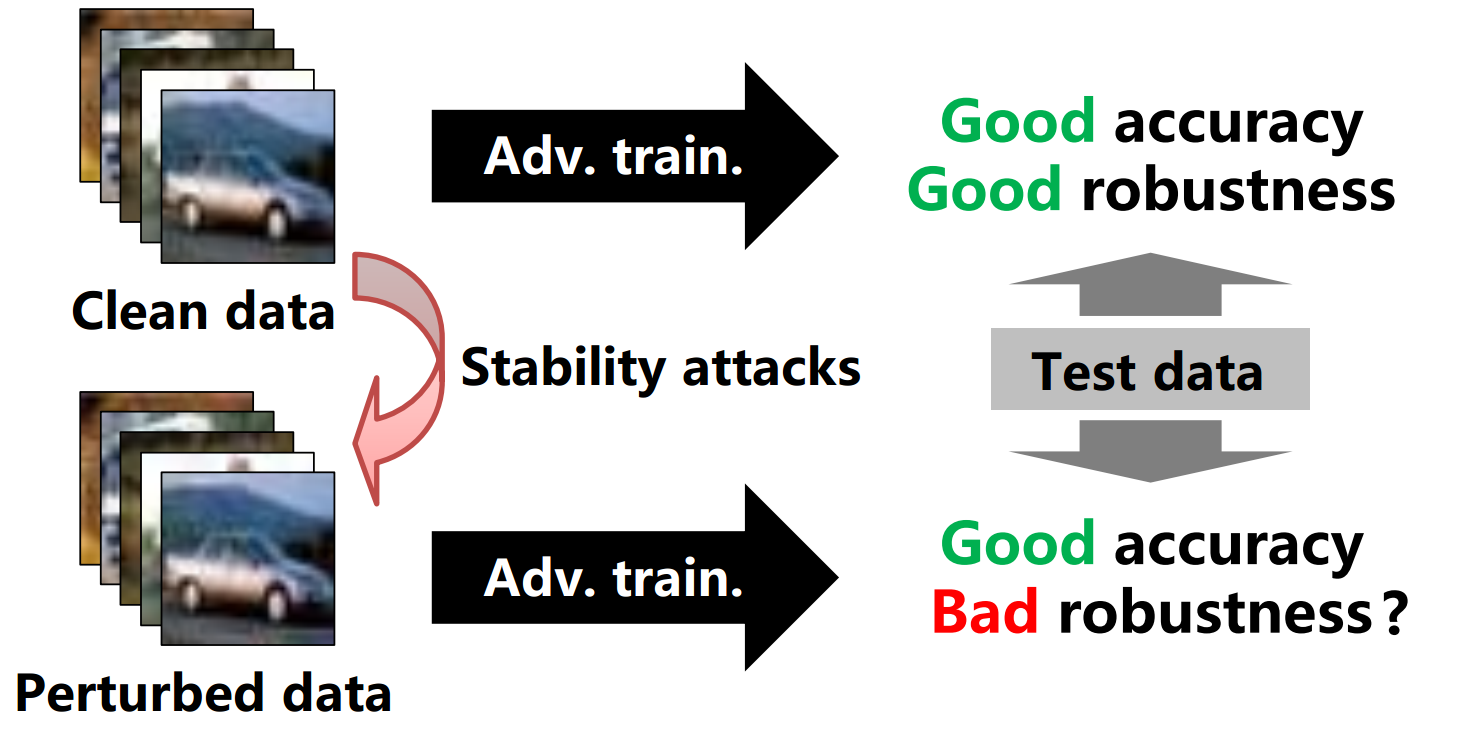Can Adversarial Training Be Manipulated By Non-Robust Features?
Adversarial training, originally designed to resist test-time adversarial examples, has shown to be promising in mitigating training-time availability attacks. This defense ability, however, is challenged in this paper. We identify a novel threat model named stability attack, which aims to hinder robust availability by slightly manipulating the training data. Under this threat, we show that adversarial training using a conventional defense budget $\epsilon$ provably fails to provide test robustness in a simple statistical setting, where the non-robust features of the training data can be reinforced by $\epsilon$-bounded perturbation. Further, we analyze the necessity of enlarging the defense budget to counter stability attacks. Finally, comprehensive experiments demonstrate that stability attacks are harmful on benchmark datasets, and thus the adaptive defense is necessary to maintain robustness. Our code is available at https://github.com/TLMichael/Hypocritical-Perturbation.
PDF Abstract

 CIFAR-10
CIFAR-10
 CIFAR-100
CIFAR-100
 SVHN
SVHN
 Tiny ImageNet
Tiny ImageNet